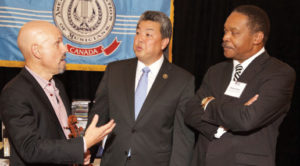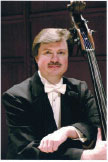2016 AFM Budget
The AFM International Executive Board (IEB) held its third quarter board meeting in November. As per the AFM Bylaws, the third quarter is the budget meeting, and according to the Bylaws the IEB is required to have a balanced budget. The IEB approved a balanced budget for 2016.
FMSMF Annual Report
The Film Musicians Secondary Markets Fund (FMSMF) Annual Report, for the year ending March 31, is available for your viewing. FMSMF represents funds collected for musicians working on motion pictures. These funds are the aftermarket. This year revenue collection for musicians was reported to be $93,049,068.
You can visit the fund’s website (www.fmsmf.org) to view an online copy of the 2015 Annual Report, and a letter that accompanied the July 1 distribution packets to the participants.
Tis the Shopping Season
Here are three reasons why you should consider using a Union Plus Credit Card this year.
- Union Plus Credit Cards offer competitive rates, US-based customer service, and more.
- Union Plus Credit Cards have 100% fraud liability, if your card is lost or stolen.
- Union Plus Rewards Credit Card offers 1.5% cash back on purchases.
UnionPlus Mortgage Assistance Pays Off
Have you ever thought about what would happen if you were injured and could not work, or if the orchestra you work for was to go on strike? I’ve often written of the Union Plus Mortgage Assistance program that provides interest-free loans and grants to help make mortgage payments when you’re disabled, unemployed, locked out, or on strike. The program has provided more than $10.6 million in assistance to union members.
Recently I came across the story of Atlanta Symphony Orchestra Principle Oboist Yvonne Peterson, a member of Local 148-462 (Atlanta, GA). When the orchestra was locked out over a contract dispute, Peterson was thankful that she was eligible for Union Plus Mortgage Assistance. She received a grant of more than $7,000 that paid her mortgage for three months during the lockout.
You can read more of this heartwarming story at:
I would like to wish all AFM members and officers a happy and safe holiday season, and prosperity in the new year







